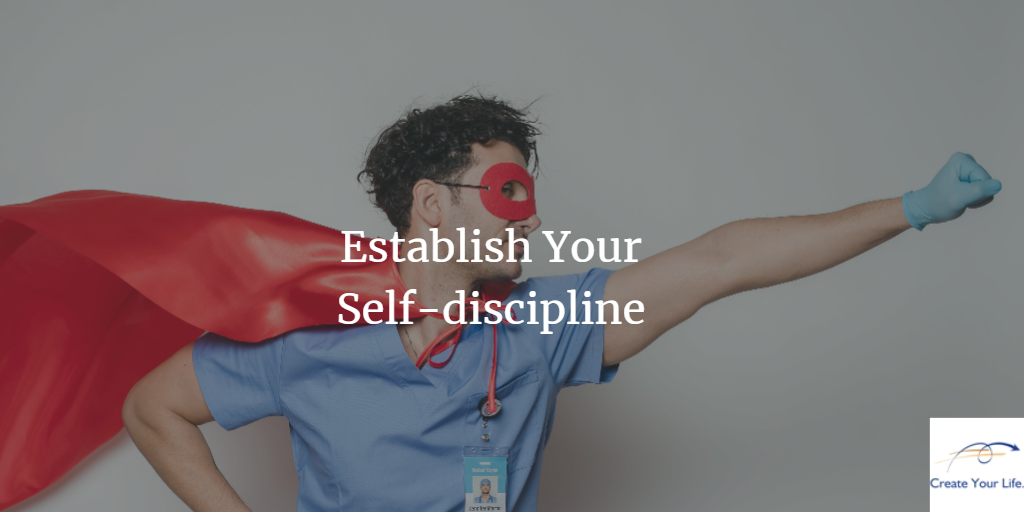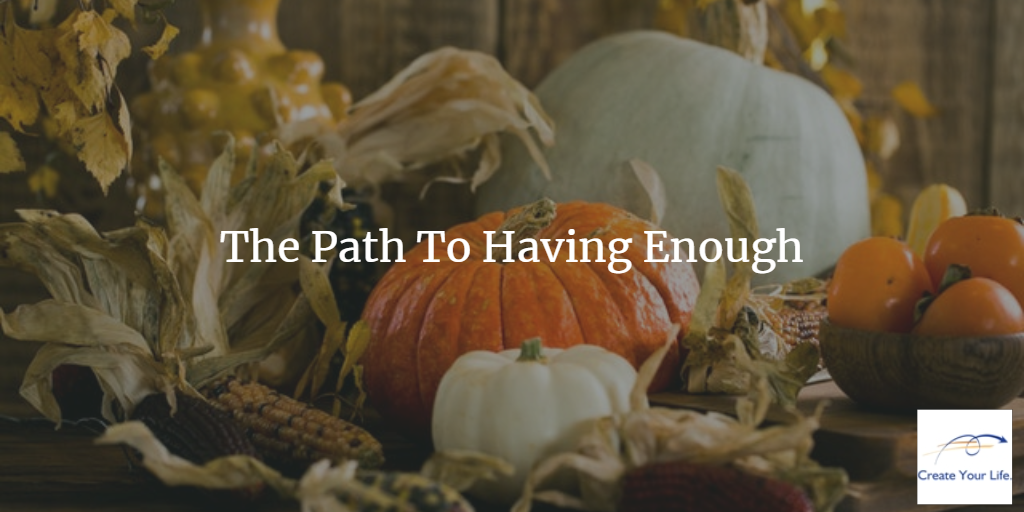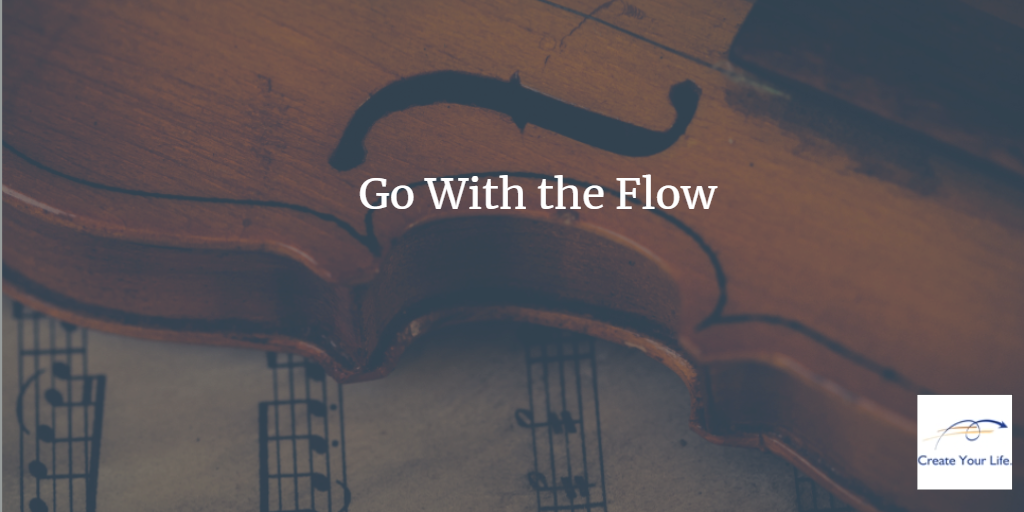Continue reading “Excelerated Reserves”Having “enough” means having a reserve. Until you get your basic physical and psychological needs met, it is difficult to concentrate on your higher purpose. But when you take steps to get your physical and psychological needs met, you free up time and mental energy to devote to achievement and self-actualization.
Have Less To Have More
Having more than enough is necessary to move up the self-actualizing hierarchy from basic physical needs, the need for safety, and the emotional needs of love and belonging, into the upper realm of esteem and self-actualization. And sometimes having less is a way to have more.
Title Photo by Andrea Piacquadio
Continue reading “Have Less To Have More”Establish Your Self-discipline
Establishing self-discipline is the “one special quality” that guarantees you “greater success, accomplishment, and happiness in life”. Without self-discipline, you are liable to experience health problems, financial problems, distractions, clutter, overwhelm, and more. By practicing self-discipline daily, you make it your superpower!
Title Photo by Klaus Nielsen
Continue reading “Establish Your Self-discipline”The Path To Having Enough
We humans are animals, too. Survival is bred in us. Before we can become our best selves, we must get our basic physical and psychological needs taken care of. Not just enough but more than enough to keep our brains from going back and dwelling on a lack of resources in any area. Having a reserve calms that fear and allows us to focus on higher goals.
TheExceleratedLife.com
Title Photo by Anna Tukhfatullina Food Photographer/Stylist from Pexels
Continue reading “The Path To Having Enough”Go With The Flow
Continue reading “Go With The Flow”“Of all the virtues we can learn no trait is more useful, more essential for survival, and more likely to improve the quality of life than the ability to transform adversity into an enjoyable challenge.”
~ Mihaly Csikszentmihalyi
Dealing With Tolerations — The Things You Can Change
Continue reading “Dealing With Tolerations — The Things You Can Change”The Stoic concept of knowing the difference between what you can change and what you can’t may be useful when you are dealing with tolerations – those aggravations and annoyances you have been putting up with and putting off dealing with.
TheExceleratedLife.com
The First Rule Of Goal Setting
Continue reading “The First Rule Of Goal Setting”You need a BIG – Bold, Important, Gratifying – goal and you need a plan. The plan gets you started, but the plan you start with is likely not the plan that will get you to your goal. Be adamant about your goal, but be flexible in the plan to get you there.
TheExceleratedLife.com
Between Stimulus And Response
The ABCs of effective living? A = Adversity, B = Belief, and C = Consequent feelings. Our Beliefs (B) about an Adversity (A) – NOT the adversity itself – cause our Consequent (C) feelings. [Seligman] It isn’t what happens to us but how we think about what happens to us that determines how we feel. By stepping into the space between stimulus and response, we can choose a more empowering set of beliefs. But first, we have to see that space.
TheExceleratedLife.com
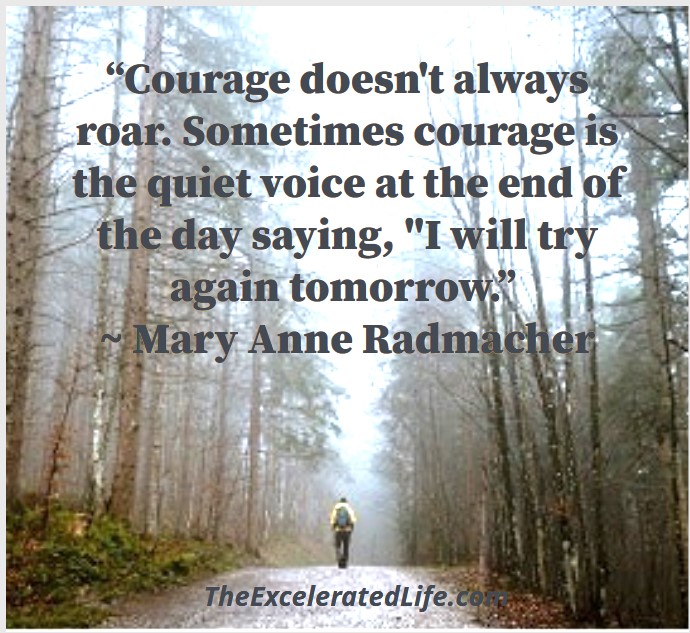
Understanding The Gap
“Between stimulus and response, man has the freedom to choose.” ~ Dr. Stephen Covey, “The 7 Habits Of Highly Effective People”
When I first read this statement many years ago, I struggled to understand what it meant. I understood the words, but I didn’t get the concept. It was completely foreign to me. I had become so inured to reacting to whatever I encountered, it never occurred to me that there was any other way to behave. I pondered this idea, discussed it with various friends, and read and re-read that section in Dr. Covey’s book.
Continue reading “Between Stimulus And Response”Accept Struggle
Difficulties are a part of life. Facing and overcoming difficulties is part of growth. Accept that struggles are inevitable. It is the first step for dealing with them when they arise.
TheExceleratedLife.com
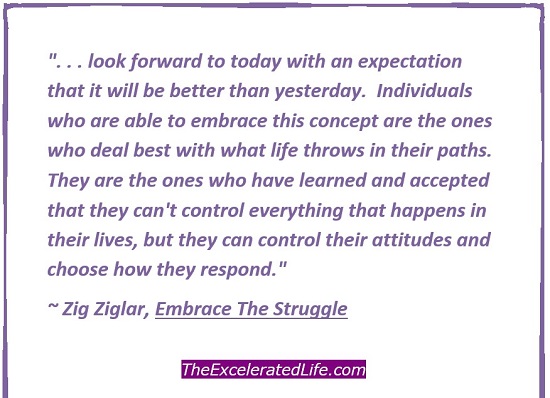
Accepting My Struggle With Shyness
I am painfully shy. I am uncomfortable in crowds and especially in groups of people I don’t know very well. Some of you may be surprised by this revelation, although some of you will not be. It began about the time I reached junior high. I often got tongue-tied when called upon in class so I rarely spoke up. I avoided parties. And I didn’t have many friends. It was difficult to get to know others and for them to get to know me. In fact, some of the older guys at my school gave me a nickname: “Oddball”.
Continue reading “Accept Struggle”A Balanced Approach To Using Character Strengths
Use your Signature Strengths to improve your life, building on positives and learning from the negatives but don’t neglect your other character strengths. If fact, you can use your signature strengths to practice and build up your lesser strengths to better use all of the strengths.
TheExceleratedLife.com
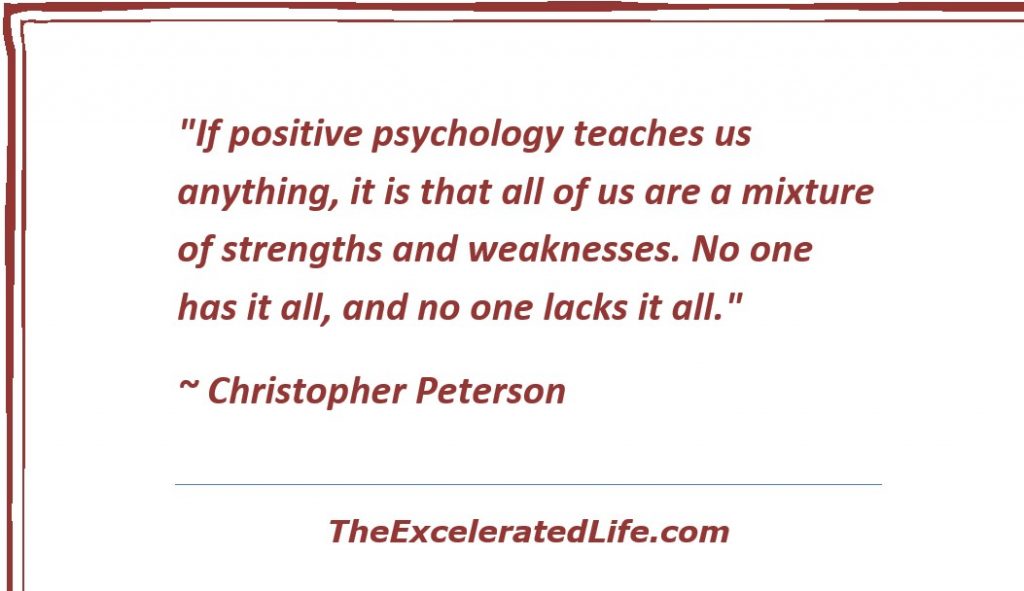
Strengths And Virtues
Signature Strengths are one of the foundational principles of positive psychology. Early proponents, including Martin Seligman, Chris Peterson, and others, combed through the wisdom literature of many of the world’s religions and philosophies. They identified six “virtues” that were common across all the cultures and thinking, ancient and modern, that they examined.
Then they identified 24 ways the six virtues are lived out. These they called strengths. We all embody all 24 of the strengths but we rely on and use our top 5 or 6 strengths more often and more naturally.
Continue reading “A Balanced Approach To Using Character Strengths”



